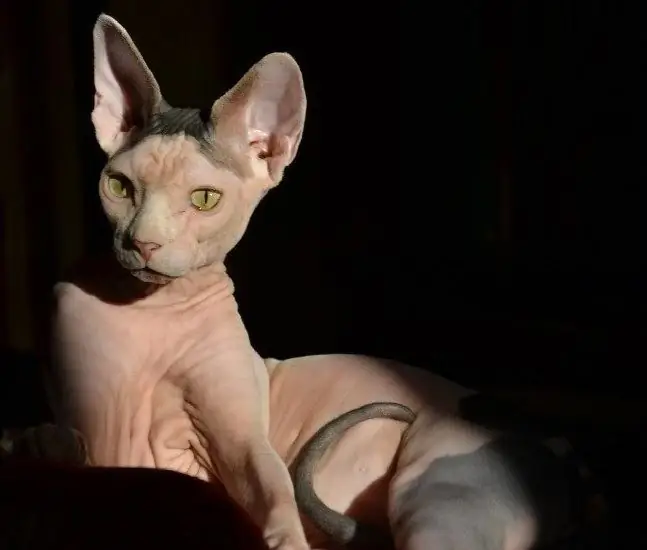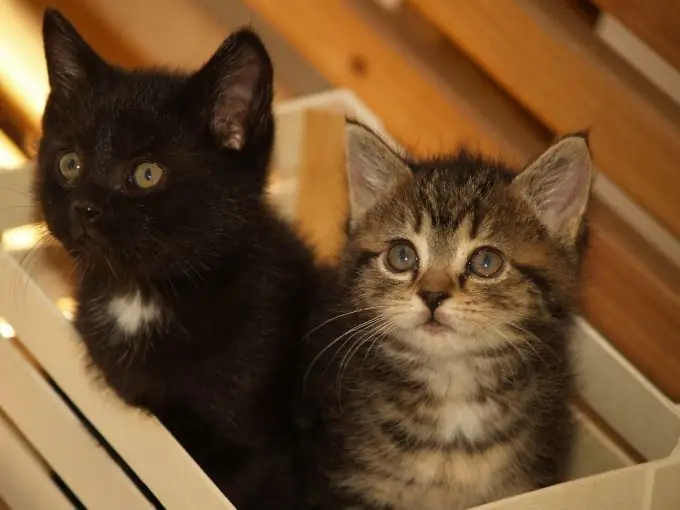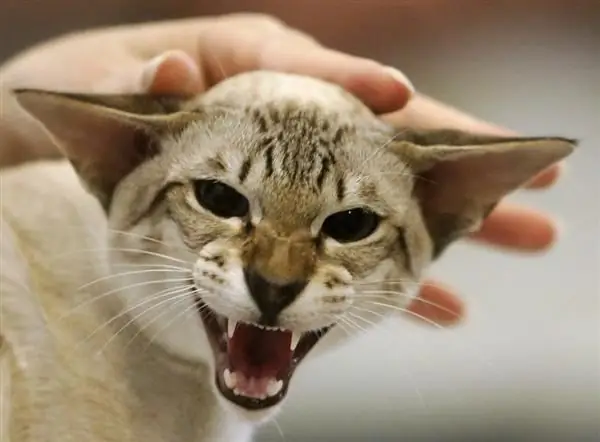- Author Delia Mathews mathews@animalspeace.com.
- Public 2023-12-16 00:05.
- Last modified 2025-01-22 15:45.
Medical statistics show that allergic reactions after close contact with cats are observed in 7% of people. But even among them there are those who love these animals very much, are not going to deny themselves the pleasure of communicating with them and want to have a cat at home. And this is quite possible, given that there are breeds that are considered hypoallergenic.

Why cats are allergic

Allergy is generally an amazing disease that can appear literally from scratch - it was not there yesterday, but today it can appear on anything: pollen, house dust, cat hair. But in the case of cats, the allergy is not caused by the coat itself, but by the protein compound Fel D1, which contains cat saliva.
You can reduce the amount of harmful protein allergens by bathing your cat more often and washing its bedding regularly, as well as treating cat toys with harmless detergents.
Considering the manic cleanliness of cats that can lick themselves for hours, it is clear that the allergen will be present not only on the coat, but also be released into the air, evaporating along with saliva. Therefore, even if you do not stroke your pet with your hands, allergy symptoms in the form of conjunctivitis and swelling of the nasal mucosa are still provided to you. But for allergy-lovers of cats there is a way out - you can choose a cat of "hypoallergenic" breed.
There is much more allergen protein in the saliva of cats than in the saliva of cats. In addition, cats with a dark coat are more allergenic than those with a light coat, and kittens are less allergenic than adults.
Cats for allergy sufferers

By and large, a dangerous protein is present in the saliva of cats of all breeds, but some have much less of it. Oddly enough, these include, for example, long-haired cat breeds: Balinese and Siberian. This is explained by the fact that the protein content in their saliva is much lower than that of other breeds. Experience shows that about 75% of allergy sufferers do not react to the saliva secreted by the representatives of these breeds.
Neutered cats have less Fel D1 protein in their saliva than those who have not undergone such execution.
The Javanese and Oriental Shorthair cats have no undercoat and the coat itself is thin and not too thick, so less dried cat saliva accumulates on it. There is a little wool in breeds such as Devon Rex and Cornish Rex, it is so short and sparse in them that it does not even absorb skin secretions, so these breeds need more frequent bathing, which is also good for allergy sufferers - clean cat hair does not secretes an allergen protein.
And of course, the danger of allergies almost does not threaten the owners of bald sphinxes who do not have wool at all. But like rexes, sphinxes need frequent washing to remove sticky secretions and oil on the skin, and they will also need to wash their ears quite often. But on the other hand, this is probably the most hypoallergenic breed.






